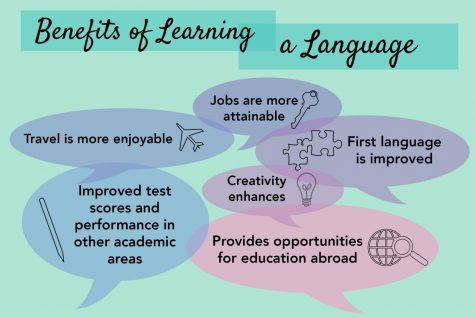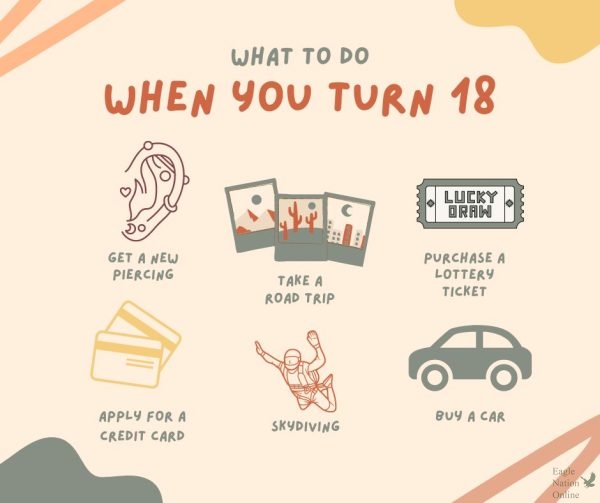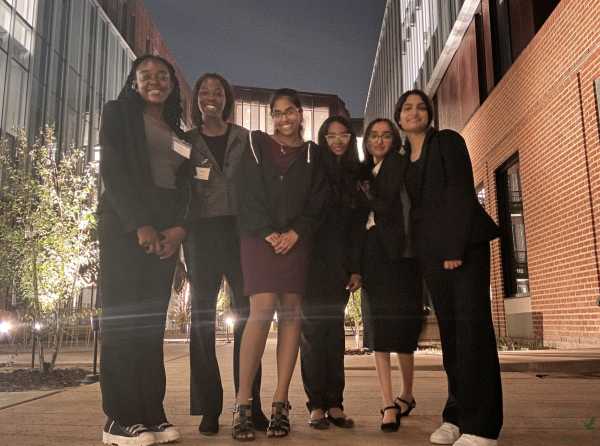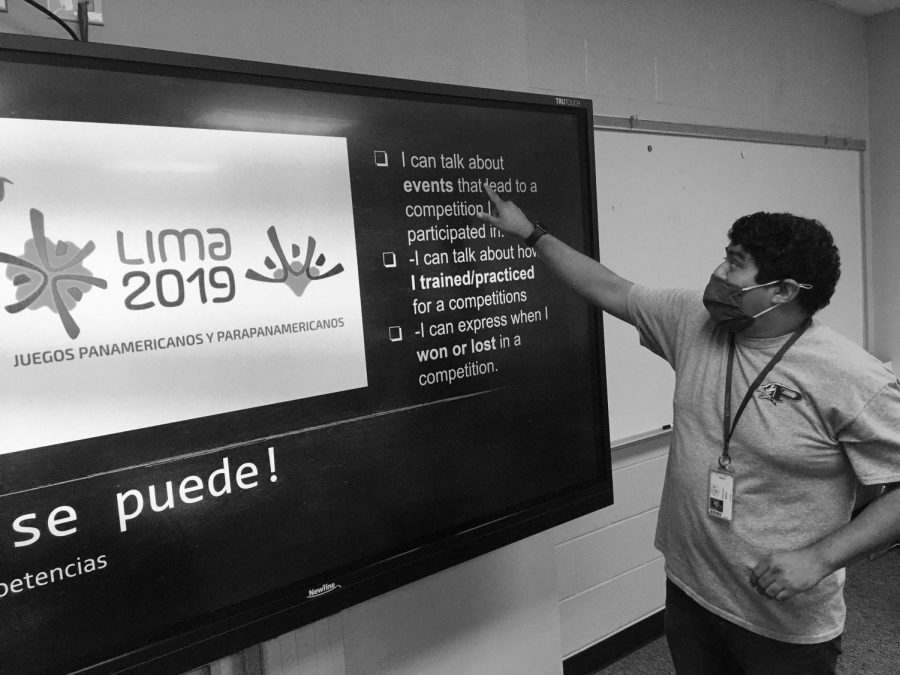Editorial: Learning 2nd language vital to teenage development
Above, Pre-AP and AP Spanish teacher Francisco Salas points to the requirements for what students in Pre-AP Spanish 3 are learning on that day. Mr. Salas holds a Masters of Arts in Spanish Linguistics and Literature, as well as a BBA in Accounting and a BA in Spanish. “I love how every day in Spanish 3 we learn something new.” Kalyani Rao said. “Señor Salas explains grammar concepts in ways that are easy to grasp for us. Every class unit we get closer to becoming fluent.”
Students across the U.S. are familiar with the requirements for graduating high school. Under most graduation plans in Texas, students are required to take at least two years of a foreign language. The outcome of learning two years of a language is not fluency, which is considered full knowledge of a second language, so even though these students are taking a second language, they are not considered bilingual unless they proceed to four to five years and can speak it fluently. Most students don’t choose to continue beyond two or three years of a second language, but research and case studies suggest they should rethink this.
First, learning a second language proves to improve academic achievement and thinking skills. J.M. Cade studied in depth the foreign language departments in the Missouri Public School District. The program discovered that second language learners had on average higher test scores, better comprehension and creative thinking skills, better development of their first language, and attracted more parental involvement. The study is based on the foreign language immersion program in the Kansas City and Missouri Public Schools in 1986-1996.

Some consider secondary languages to be unimportant and just an outlier to academic achievement, unnecessary for success. This can be disputed, however, because extensive studies such as the one mentioned above show that second languages are becoming increasingly more important than they have been.
As well, a second language will open up more job opportunities. The report “Not Lost in Translation: The Growing Importance of Foreign Language Skills in the U.S. Job Market” finds that over the past five years, demand for bilingual workers in the U.S. has more than doubled. Job postings aimed at bilingual workers were around 240,000 in 2010. By 2015, that number had grown to approximately 630,000, according to this report.
In fact, jobs seeking bilingual workers are more available than others, and they are greatly in demand, making it an easy and accessible option for those who need work quickly in different areas — if they took a second language in high school or as an adult. Often jobs seeking bilingual workers pay more for those additional skills.
According to Beth Daley, Editor and General Manager of The Conversation, fluency in a second language provides greater access to education and opportunities abroad. People who are bilingual or trilingual have the opportunity to earn a degree in a foreign country, which often is much less expensive than getting a degree in the U.S. As well, it enables experience in a foreign environment, which opens up cultural appreciation and understanding.
An opposing view of this is that plenty of opportunities exist in our home country. Going abroad seems unnecessary. As the world becomes increasingly intertwined, and globalization merges cultures, it is becoming more and more important to be immersed in cultures around the world to stay on top of opportunities.
Learning a second language is vital to thriving in the world of 2020. The best part is that it’s really easy. Most high school students have free access to at least one second language course. Adults can sign up for a language course for free, using DuoLingo, or sign up for a subscription with well-known language course programs such as Rosetta Stone.
Your donation will support the student journalists of Prosper High School. Your contribution will allow us to purchase equipment and cover our annual website hosting costs.

Honors, Experience and Awards:
5 Best of Sno publications.
5th place in Copy Editing, district UIL meet 2021
Honorable mention- Podcast interview, 2021 TAJE Fall Fiesta
UIL Journalist 2020-2021, 2021-2022
Quill and Scroll Society member 2021-2022
1st place in Copy Editing for CENTEX UIL meet 2021-2022
3rd place in Copy Editing for Aubrey UIL meet 2022
2nd place in Copy Editing for NorTex UIL District meet 2022
National Silver award for poetry from the Scholastic Art & Writing organization
National Recognition Award from College Board
AP Scholar with Distinction Award
2 Best in Texas News & Broadcast Awards, 2022: Personal Opinion Column- Honorable Mention, News Story- Honorable Mention
President of the Classic Book Club, 2020-onwards
Member of the National Spanish Honors Society (NSHS)
PHS Award for Academic Excellence in Newspaper II, 2022
Dean’s Scholarship for Cornell University Pre -College Program
Sibley Scholarship for Brown University Pre -College Program
CIEE Global Navigator Scholarship













